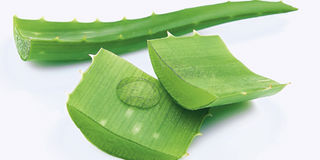Researchers set to determine medicinal value of aloe vera plant

Different parts of the plant are used for different purposes and aloe vera has both internal and external applications.. PHOTO | FILE
What you need to know:
- Upon asking on why the change happened, Ezekia says, “Sometimes I could find traders walking in the streets and from door to door advertising and selling aloe products. This put me off. I only wanted to buy the products when I needed them.”
Five years ago, John Ezekia, a resident of Kimara in Dar es Salaam was a regular user of products made from aloe vera plants—not until he changed his mind.
Upon asking on why the change happened, Ezekia says, “Sometimes I could find traders walking in the streets and from door to door advertising and selling aloe products. This put me off. I only wanted to buy the products when I needed them.”
The 48-year-old tells Your Health that at times people could call, invite him to join the aloe products selling-business. “I always wondered why it had to be about selling them, and not actually applying them.”
However, he believed that aloe vera products, such as soaps, made his skin smooth. “But, I am not sure if there was any scientific proof for that,’’ he says.
Aloe vera, a popular medicinal plant that is widely used in the cosmetics, pharmaceutical and food industries is now on the priority list of health researchers in Tanzania.
Its leaves are full of gel-like substance, which local scientists say could contain numerous beneficial compounds.
But Mama Isack (55), doesn’t wait for scientific proof. She has a strong belief that aloe products indeed have medicinal properties.
“I once developed a toothache and was advised by a friend to try and use aloe plants and products to cure my toothache, I did not hesitate,’’ says Mama Isack.
She adds, “They tasted bitter but after using them, it made a difference,” she says.
Seeking proof of aloe use
Aloe vera is a plant species of the genus aloe. It grows in tropical climates around the world and is cultivated for agricultural and medicinal uses.
There has been little scientific evidence of the effectiveness or safety of aloe vera, extracts for either cosmetic or medicinal purposes, and here in Tanzania, this had been something much of speculation.
People believe that aloe vera products or anything related to aloe plants can help to lower blood sugar levels in diabetics, may improve skin and help prevent wrinkles, reduces constipation, helps treat mouth ulcers, cancer sores, reduces dental plaque and antibacterial properties.
It’s here that a joint study will be carried out by researchers in Tanzania and China as a preliminary step towards establishing the scientific facts behind the much-talked about benefits of the aloe plants.
The National Institute for Medical Research (NIMR) in partnership with Jufeel International Group of China (JIG) recently signed a three years Memorandum of Understanding (MoU) to start conducting a scientific study, using different aloe plants and see if the plants have the ability to cure human diseases.
The USD5.3 million MoU was signed few weeks ago by both countries as part of the wider project on researching about non communicable diseases (NCD) and communicable diseases.
According to the NIMR Director General Prof. Yunus Mgaya, the research will be jointly conducted by Chinese and Tanzanians experts in the country.
“Since it is a research, we cannot predict anything so far, however, soon after the research and MoU come to an end in the year 2020, we will be able to determine and release final results on the aloe plants,” he said.
JIG Chief Executive Officer Mr. Brad Zhang added that the use of technology during research will be able to give positive results on aloe plant in Tanzania.
According to International Journal for Equity in Health, by 2020, it is predicted that NCDs will account for 80 per cent of the global burden of disease, causing seven out of every 10 deaths in developing countries, compared with less than half today.
The report shows that there is a lack of single comprehensive public health legislation in country. The existing legislation is scattered under different authorities and is out-dated for present times.
And, the standards for the protection of the environment are inadequate as a basis for implementing legislation of the control of human health hazards.
Medicinal value of aloe
Experts also believe that aloe vera could be quite an incredible medicinal plant, full of nutritional benefits. It is a juicy plant and parts of the lily family (Liliaceae), the same family that garlic and onions belong to.
Different parts of the plant are used for different purposes and aloe vera has both internal and external applications.
It’s used in traditional Indian medicine for constipation, skin diseases, worm infestation, and infections and as a natural remedy for colic. In Chinese medicine, it’s often recommended in the treatment of fungal diseases, and in the Western world, it has found widespread use in the cosmetic, pharmaceutical and food industries.




